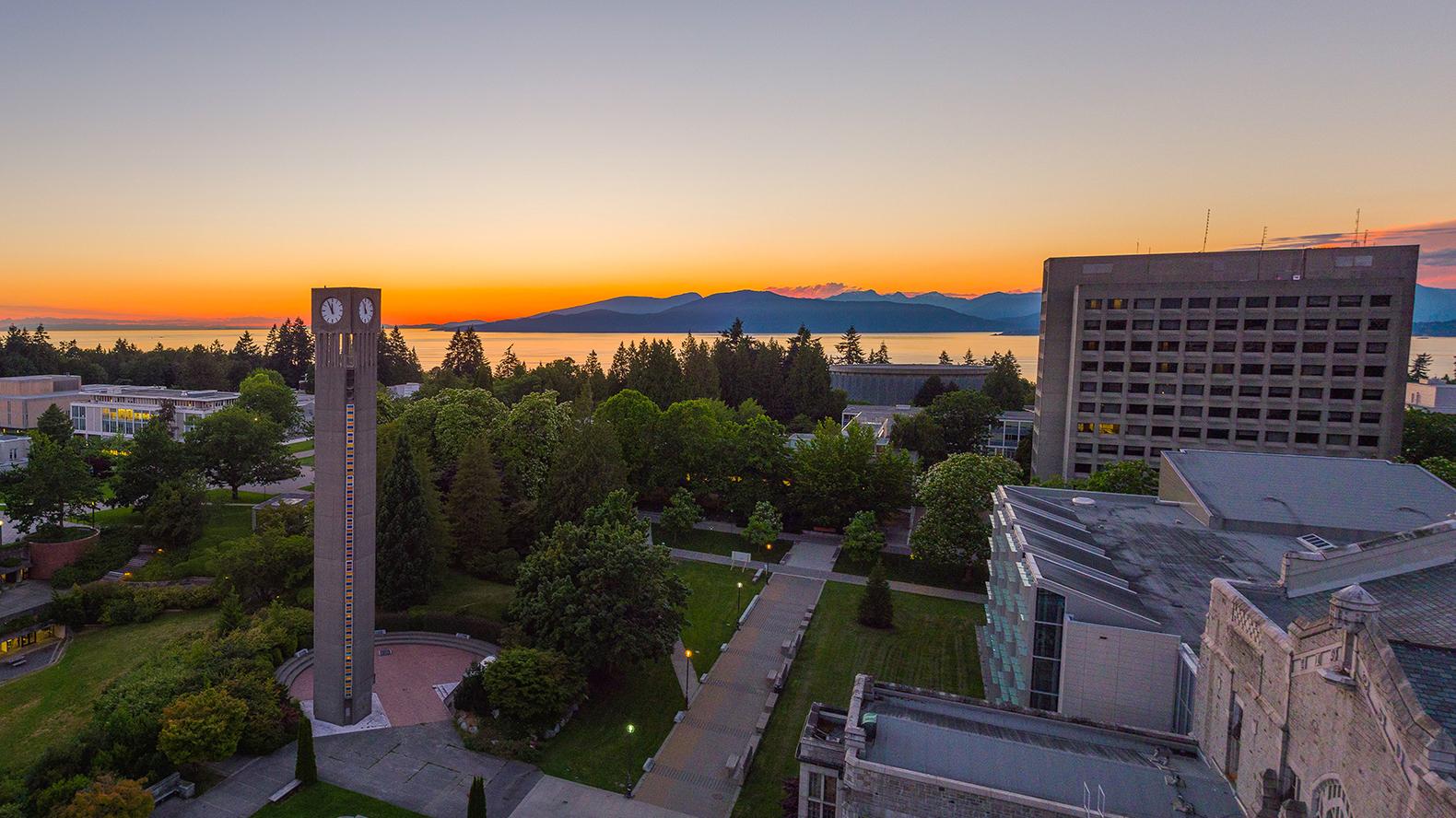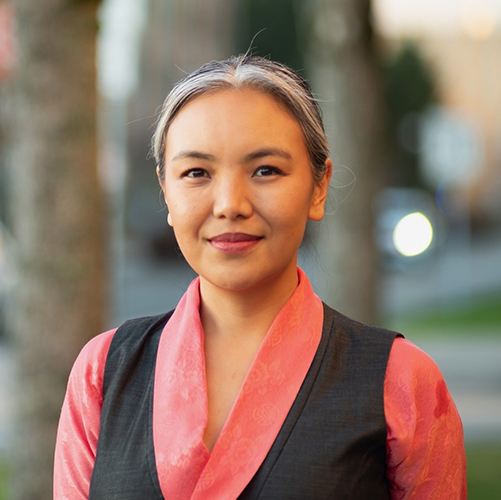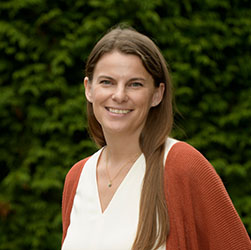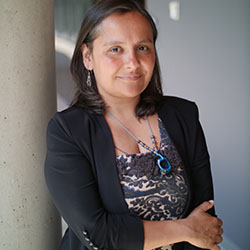
Words by Niki Afsharpour and Charlotte Taylor
UBC’s delegates includes faculty and staff, as well as undergraduate, graduate and PhD students, who come from diverse backgrounds with expertise in international economics, critical Indigenous studies, research and industrial partnerships, population and public health, electrical and computer engineering, environment and sustainability, geography, and oceans and fisheries.
We are pleased to have had the opportunity to interview a number of the UBC delegates and are eager to share some of their messages.
Many of the UBC delegates attending COP27 highlighted the importance of centring Indigenous and critically informed voices in discussions of climate justice and climate action.
Shannon Waters emphasized the importance of centring Indigenous perspectives in how we interact with our climate. “Our ecosystem is our health system. Climate change is a health issue. I feel that the Indigenous perspective looks at the health of all the people, the land, the water, and the animals, and looking at our environment as relative from that Indigenous perspective and centring Indigenous viewpoints and decision making around governance is what we need to change the trajectory we've been on with regards to what's going on with the climate and how we've been treating it.”


Delegates also spoke to the intersectional nature of the climate crisis, which interacts with systemic inequality and causes disproportionate harm among populations of different geographic locations.
Abul Bashar Rahman highlighted the privilege and the impact of the west in causing disproportionate harm. "It is high time we acknowledged our privileged actions in the west have an impact on the lives of millions across the globe. By 2050, one third of Bangladesh is going to be under water. And, it is us, you and I, people in power, corporations, and governments that are responsible for the billion climate refugees displaced for inaction."
Vanessa Andreotti also spoke on disproportionate harm and shared thoughts on the need to develop the capacity to move forward together. “We have a lot of saturated stuff that we need to face that is very difficult, very painful, very uncomfortable, and now, we need to develop the capacity to do that. So, how do we figure out how to do that together with compassion, with humility, and with humour?” she asked. “Because this is not going to go away. This is something that future generations will have to deal with for a long time, and we cannot promise them that everything's going to be okay.”
Individuals and communities most impacted by climate change have been consistently underrepresented in discussions and decision-making regarding their environments. Delegates emphasized the importance of representation and inclusivity through a holistic lens.
“While I can't claim to represent other people, I do always try to share the perspectives - the urgency, the concern - of the university student body whenever engaging with others about climate change,” Simon Donner said.
Similarly, Colin Wilson reflected on the core objective of their position. “As a staff member, I think of the real reason why we're all here. That is to make sure students get a great education. This education should assist them in developing skills needed to advance this climate change work. I really believe that the students are going to make the difference.”
When speaking about the importance of student involvement, Gideon Berry expanded on their goal of attending COP27. “Why I’m putting myself out there as a delegate is because I feel that youth are the most impacted by climate change but by the prospect of being youth, we are undermined so much about it. I choose to be hopeful about what could possibly be because that’s the only way we can change things."


To begin decolonizing our understanding of the climate crisis, we must practice regenerative learning and unlearning within our communities. This will help individuals and communities to develop hope and the capacity for resilience. Re-envisioning relationships is an important part of this.
Veronica Relano would like people to look at marine resilience as an interplay of the 4 Pillars for Marine Conservation Action, which include relationships. “We will focus on these 4 things: Mitigation, adaptation, finance and collaboration,” she explained. “It's more about sharing our good practices and if we have something that works, try to spread and share it, and also collaborate.”
Vanessa Andreotti also spoke to the importance of strengthening our relationships in this climate work. “I'm interested in the kinds of dispositions and capacities we can start building now so that we can have hope in the weaving of relationships based on trust, consent, reciprocity, respect, and accountability.”
Meet the Delegates

Abul Bashar Rahman (he/him)
Bachelor of International Economics, Faculty of Arts
Reach out to Bashar with COP27 inquiries at abrahman@student.ubc.ca

Pasang Sherpa
Assistant Professor, Lifeways in Indigenous Asia, The Institute for Critical Indigenous Studies, First Nations and Endangered Languages Program and the Department of Asian Studies
Gideon Berry (they/them)
MEng student, Electrical and Computer Engineering
Reach out to Gideon with COP27 inquiries at gberry01@student.ubc.ca.
Veronica Relano
PhD candidate, Oceans and Fisheries
Veronica is working to create accessible science communication about the ocean's most prominent issues through a project called Somos OceanoS 2030 (SOS2030 – Ocean stories for conservation)

Rudri Bhatt
PhD candidate, Institute for Resources, Environment and Sustainability

Shannon Waters (she/her/hers)
Clinical Assistant Professor, School of Population and Public Health
Simon Donner
Professor, Institute for Resources, Environment and Sustainability / Department of Geography; Member of Net Zero Advisory Body

Vanessa Andreotti
Professor, Educational Studies, Faculty of Education; Interim Director of the Peter Wall Institute for Advanced Studies
Thank you to the UBC delegates for representing our community at COP27 and for sharing their experiences.
If you’re interested in further engaging with COP27, feel free to check out the Sustainability Hub’s COP27 page, connect with the team at ubc.atCOP@ubc.ca, or share feedback that will inform the delegates' work at COP27 by completing the UBC COP27 Survey.